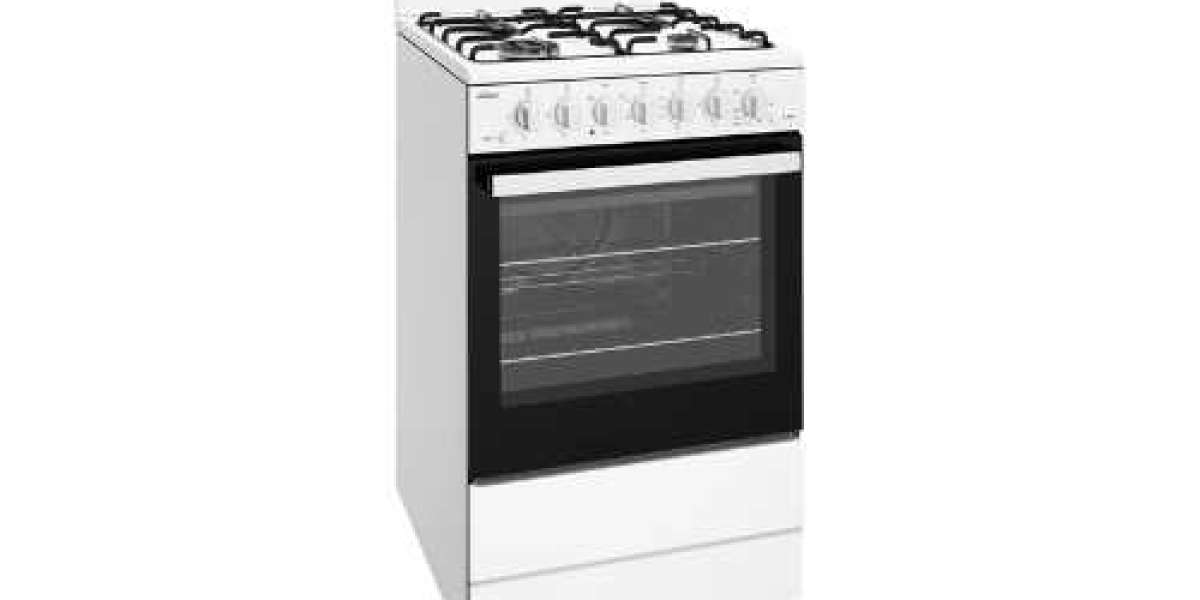While changing or buying a stovetop for the very first time in your kitchen upgrade, this might probably be one of the decisions you have to make in your life-there will definitely be a gas stove top versus dual-fuel stove. Both provide different options and advantages: it just really depends on personal cooking preference, budget, and more so about kitchen setup on what the top priority is-savings of energy or control on energy. This article outlines the choosing procedure for a gas stove or dual fuel.
1. Understanding Gas Stoves
A gas stove is fuelled only by natural gas or propane, offering direct flame heat for stovetop and oven use. A gas stove has been an affordable, efficient staple for decades in home and professional kitchens around the world.
Pros of a Gas Stove
- Immediate Temperature Control: This gas stove can provide immediate heat and even control of the flame, which helps recipes that require rapid change in temperature.
- Efficiency and Cost Savings: Gas stoves are cheaper at the start and may also have lower operating costs, depending on how cheaply natural gas is compared to electricity in a region.
- Reliable Performance: Gas stoves are versatile and also can be used during periods of power outages so that they are perfect even for areas with frequent electricity disruptions.
Cons of a Gas Stove
- Inconsistent Heat in the Oven: Gas burners generally tend to heat more evenly on top of the stove, yet gas ovens tend to have hot spots where others do not, such that electric ovens will warm more consistently.
- Moist Cooking Environment: Gas ovens tend to create a moist cooking environment, which is not suitable for certain recipes like cookies or pastries that require dry heat.
2. Understanding Dual Fuel Stoves
A dual fuel stove is a gas cooktop combined with an electric oven which provides one with the benefits of both gas and electric power in one appliance. It has a hybrid approach in giving precise control of gas burners with even baking results of an electric oven, hence its popularity among avid home chefs.
Pros of a Dual Fuel Stove
- Thoroughbred: Electric ovens provide uniform temperature with better baking, roasting, and other recipes that require even cooking. This attribute of maintaining constant temperature is a sizable advantage for bakers.
- Efficient stove top control: Just like an older gas stove, double-fuel stoves provide quick controllable heat on the cook top. This combines a versatility for different cooking styles.
Cons of a Dual Fuel Stove
- Higher Upfront Cost: Dual fuel stoves cost more than a standard gas stove. It is an investment, though the extra features and better cooking control may be worth it to serious cooks.
- Installation Complexity: Since a dual fuel stove requires both gas and electrical connections, if your existing kitchen setup already supports both, installation is going to be more complex and costlier.
- Potential Maintenance Requirements: Fuel: Double the size and double the fuel; hence, one would expect the same with regard to maintenance requirements based on the hybrid nature of such a dual-fuel design.
3. Comparing Performance: Stovetop and Oven
Stovetop Cooking
Both gas and dual fuel stoves have a gas burner on the cooktop, meaning you get the fast reaction to changes in heat and the ease of gas cooking. There is, thus, little visible difference on the cooktop between the two since they provide equivalent flame-based heat.
The Oven performance.
This is where the differences come out. Gas ovens, being efficient as they are, sometimes create uneven heat distribution; this makes it a little difficult to get perfectly baked or roasted dishes. Electric ovens, however, are in dual fuel stoves and they give a steady and evenly distributed heat, ideal for baking. This accuracy in temperature control also allows for convection cooking, where a fan circulates hot air to cook evenly, which may improve the result for roasted meats, baked goods, and other temperature-sensitive dishes.
4. Energy Efficiency and Operating Costs
Gas Stoves
Whenever available natural gas is less costly than electrical power, an efficiency argument generally can be constructed for use of gas rather than electrical appliances; heat is used instantly so temperatures don't need to climb before one gets full, and that waste heat contributes in any event to some eventual purpose.
Dual Fuel Stoves
Dual fuel stoves tend to be more expensive to run, since the electric oven is often less efficient than a gas. But if you're cooking stovetop recipes most of the time, this might not be an energy-intensive cost. Some owners feel that the energy differential is worth it for the reliable baking and roasting performance of an electric oven.
5. Maintenance and Durability
Gas Stovetop
Gas stoves have fewer components and are, in general, simpler in design: therefore, fewer parts exist to fail. Gas burner cleaning and occasional checks on the integrity of gas connectors usually suffice.
Dual Fuel Stoves
A dual fuel stove has all the parts of a gas stove but adds an electric component, thereby having more parts, increasing the chances of needing repair or maintenance over time. A convection oven that happens to be electric may bring additional components, such as fans, that require scheduled maintenance. Most dual-fuel stoves are solidly built, with a good quality of parts, which compensates for the higher costs.
6. Choosing Based on Cooking Style
- If you tend to cook just plain simple, everyday foods, all you might be looking for is something with all that you need, but for a lesser price. For straightforward stovetop cooking, fast stir-fries, and simple one-pot meals, a gas stove will always work.
- For the serious baker or food enthusiast who enjoys trying new recipes involving precise temperature, this dual fuel stove is probably a worthwhile purchase. This electric oven tends to cook at an even heat, which can make all the difference in your baking and roasting efforts.
- For those who are budget-conscious households, gas stoves would be an excellent compromise between affordability and performance. It generally costs less at purchase, and they might even lead to lower utility bills since gas is generally cheaper than electricity in most places.
Conclusion
This is dependent on the cooking needs, budget, and the set-up of the kitchen. A gas stove is dependable, cost-effective, with just the right amount of basic functionality, quick control of heat, and fast cooking. This kind of stove is a blend of the best of gas and electric, offering versatility in having a gas cooktop and reliable performance by the electric oven, which happens to be ideal for the bakers or any lover of cooking who needs such precision.
Think of your cooking style, budget, and your long-term goals for the kitchen. Whatever you select, you'll be guaranteed brilliant performance from both gas and dual fuel stoves to elevate your culinary experience in different ways.








